- In the last few weeks before I left Malawi -- moved (back) to Canada -- I found myself often annoyed with James. He began to call me bwana. He had called me bwana in the beginning, but I had asked him not to . . . pleaded with him . . . perhaps ordered him, in a way. "My name is David . . . call me David." But in the few weeks before I left Malawi, he started calling me bwana again. It made me so annoyed; and I hated for being annoyed -- him or me. In those last weeks, as he had done at various times over the two years he worked for me in Malawi, he referred to my friend Sara as Candace: "How is Candace?" or "Is Candace coming today?" And I would answer tersely, "Who is Candace? I don't know any Candace." Embarrassed, he would rephrase; "Candace" would become "your friend." Candace had left Nkhota-Kota much more than two years earlier, many months before I had even arrived. She had been the future wife of Paul, James' previous employer. Like me, Paul was a volunteer teacher at the secondary school. Paul was white and British and I am white and Canadian. Paul's girlfriend Candace was American and worked at the hospital, like Sara, who was also American, but not my girlfriend. In the weeks leading to my departure, sometimes James would call me "Paul." Periodically over the two years, he had called me that, but when he called me "Paul" in those final days of my life there, it hurt.
- James is brilliant and all, and I love him and all, but I hate having him -- a worker. I hate becoming lazy, leaving dirty dishes to be washed; and hate stupid petty things like James "cleaning" the wax off the wine-bottle candleholder I had slowly been growing (1/10/97). [1]
- The only time I had ever before kept a journal was while traveling. But, I had moved to Malawi. I stood outside the Deputy Headmaster's house, under a mango tree. He kept asking about my home and when I was going back. He already knew about that home and the duration of my contract. My "home," I asserted, was 50 meters down the path, a brick-walled, tin-roofed house identical to his. My explanation was frustrated, like the frustration I felt when, having returned from Malawi after living there for two years, people in Canada would ask me about my "trip." I lived in house #6 on the campus of Nkhota-Kota Secondary School. There is no street address, but it was one of many houses in a row along a mango-tree-lined road. Once, a British District Officer had decided that his trip from house to office should be sheltered by the shade of mango trees. I had a post office box. There were pictures on my walls that Malawian friends had painted and the furniture, while provided by the Ministry of Education, was mine to arrange as I liked. I had moved to Nkhota-Kota. New and strange places like the market and the jetty and bottle-stores had become familiar -- so much so that I could walk around after dark, even when there wasn't a full moon. Nkhota-Kota is not a vacation destination. But I kept a journal.
- Sometimes I would return to my house from teaching and find my furniture re-arranged. I would put it back the way I wanted it, but the next day it would be moved again. For previous employers, James had done laundry, cooked, cleaned, gardened. I paid him more, but asked him only to do laundry. There's a rant in my journal about house plants and flower gardens. I would come home to find them watered and tended, a hobby taken away. But it's not this; it's that my house isn't my house; I can't even plant a garden and nurture it the way I want to (19/5/98).
- Some days were difficult. I was out of place; perpetually new and different. I'd wake up tired of being lonely. Six-thirty in the morning, sunshine squeezing through rain clouds to the grass. Maybe a rainbow, but I dare not look. Necktie tied, waiting for Monday caucus and assembly. I want to go home; but where or what is that? (16/3/98). But these moments only happened some days. There were many other days too:
clouds/ erupt/ from a shelf of air/ above an invisible/ volcano/ above the blue/ water
like flowers
tumbling towards/ the sun
all afternoon
til /with a pink plastic bata-bata/ she rubs out the chalk/ in a cloud of white dust
and class begins
- One morning I stood at the end of the hallway, outside the administration block, where teachers congregate to chat and play bau or Scrabble. Some colleagues began to talk about the relatively new Junior Certificate literature anthology, a collection of Malawian folklore, as well as poems and short stories and drama, written in English. As students walked by, or milled about listening -- students who were studying that same anthology -- my colleagues compared this anthology with the previous reader, the one they read in secondary school. It had essays by Orwell, and poems by T.S. Eliot, Shakespeare and Browning. Only British literature is good literature, they argued. Students should read that, not Malawian literature. And, why read Malawian literature in English, anyway?
- From a letter to the Headmaster from the performers of The Banana Tree:
We want to show the whole school a good example of being much concerned with the literature of Malawi. Another reason we want to encourage you, sir, so that you can try your best to find many textbooks of Malawian literature for us because they are not sufficient (5/9/98).
- For weeks, students would meet every afternoon to study their lines and practice. I didn't have to explain the jokes to them, like the Malawi Certificate level teacher did for Julius Caesar. I didn't have to explain odd idioms, like those found in The Diary of Anne Frank. I simply sat and watched as they discussed where on the stage they would be and what actions would go with the words. One actor borrowed my bicycle the morning of the performance to ride out into the villages which surrounded the town and ask a farmer for banana tree leaves for a prop. And that Saturday afternoon they performed. (Other teachers stood at the back of the audience and spoke through the whole play.) As I watched, beaming . . . the image of students walking out of my classroom in protest, upset that a white man taught them Malawian literature and demanding to study Malawian English literature in Chichewa, seemed so far away.
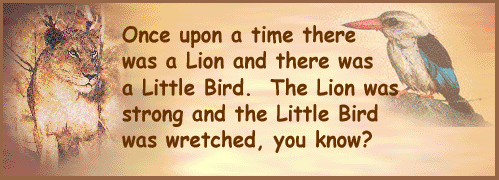
- The town of Nkhota-Kota is sometimes called Linga. Linga means stockade. One cold gray morning, threatening rain, a man took me for a walk through town. We walked down through Lunda village to the edge of the lake where there are ruins of a mosque. In 1840, or thereabouts, Jumbe, the slave trader, had arrived from Zanzibar and had built a village and the first mosque in the town. . . . there are battles . . . the captured are chained in human caravans and marched to the chief's centres, like here I think, where they are sold to merchants and marched to here, I think. . . . Some were tied in gangs of a dozen each with an iron collar let into a long chain, led, I imagine, by a leash. The women were chained or tied with bark rope. They carried a heavy load of grain or ivory, here (7/7/97). My guide pointed out rice fields where women were bent over in the shallow water tending their crops. This is where the stockade stood, he said, where the slaves were kept before being packed into dhows and sailed across the lake, before being marched again to the shores of the Indian ocean, where those who survived were once again packed into dhows and sailed north to Zanzibar. In the history books, there is a constant reference to the word "lucrative." "Lucrative cargo" made its way from central Africa, sometimes via Nkhota-Kota, to the slave markets in Zanzibar until those markets closed in 1873. The Jumbe called Salimu lived in Nkhota-Kota from 1840 to 1870, his successors continuing on after him the trade until, a story goes, at least the 1890s.
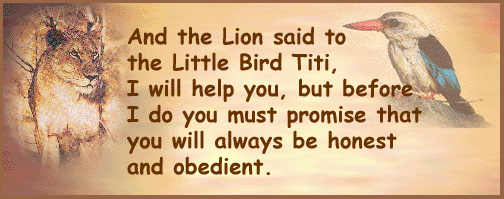
- In the courtyard of the mission hospital, across from the Anglican cathedral, there is a sign in front of a large tree:
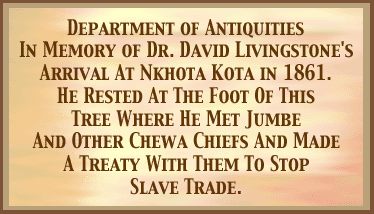
- Sometimes I would walk along the beach and children would point out upon the blue waters and yell, nyanja! I would turn and look inland and shout back kuti? straining to see this lake they spoke of. It made me feel like Dr. David Livingstone I presume, standing on the shores of the same lake on 17 September 1859, with his guides, scribbling in his journal a discovery, Lake Nyasa.
- In my journals there are "notes on the continuing past," comprised of jottings from walking tours and history books. But the past continues in other ways, too.
- There are angry scribbles in my journals describing how the British volunteer, with whom I shared a house for six months or so, would tell children to call him mzungu, or recording his rants in which he would decry "they" and "them" and "these people," and justify his drinking and debauchery by condemning volunteering as a means of development (a.k.a. helping the "lazy African").
- I met many volunteers and expats like this: 30-year-olds with centuries-old ideologies. It's hard to teach anti-colonial education in a square room with a chalkboard on one wall, with rows of chairs and desks mimicking the neat rows of Britain, with students who stand when the teacher enters, the teacher part of a continuing past. I printed in large letters on the chalkboard, trying so hard to teach my students that the verb chat is spelled CHAT and not CHART. But English is never just a means of communication. I presume to mock Dr. David Livingstone, but for many of my students, he is a hero. Nyasa is not a word from his language; and it does mean lake.
- The past continues: One afternoon, a troop of evangelical Christian missionaries from America held center-stage before two assemblies, one for the boys and one for the girls. Like my temporary house-mate, they took pride in their difference, announcing to the gathered students -- though it was somehow obvious -- that they were "azungus." They came to educate about HIV/AIDS: "Would you have sex if someone would shoot you if you did? No? Well. . ." And . . . "Condoms have microscopic holes that allow HIV." And . . . "Masturbation is not in itself a sin, but if you think about a girl it is wrong and you shouldn't do it because that's what wet dreams are for" (29/6/98). And the most important lesson of all: IF YOU HAVE A FRIEND WITH AIDS, HE WILL SOON DIE. YOU MUST GIVE HIM A CHANCE TO DECIDE IF HE WANTS TO BECOME A CHRISTIAN AND GO TO HEAVEN. ON THE NEXT PAGE YOU WILL SEE HOW TO BECOME A CHRISTIAN. (Tucker 13).
(Note: Probably 40% of the students at Nkhota-Kota Secondary School are Muslim)
- As much as I tried to disappear within the mass of students, my difference marked only by my position as a teacher, I was singled out and stung by the call, "mzungu," a call of recognition and an assumption of connection by one of these traveling missionaries. And in that greeting, all my mental notes of myths about condoms and masturbation to debunk in class the next day became just the presumptions of another white man here to help.
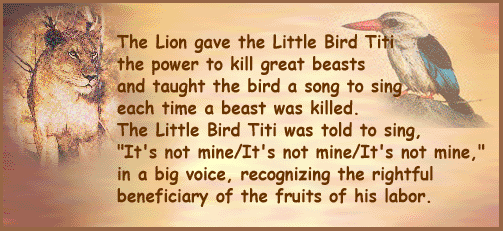
- In the market at Nkhota-Kota I bought my clothes. I had a friend from England who said she had never been able to afford designer clothing "back home." She'd buy bags and bags full of clothing in the market, rummaging through the bails of second-hand skirts and sweaters for treasure. When she returned to England she would have a wonderful wardrobe. Malawi is considered a Least Developed Country, a developing nation, part of the South, the Third World. I made discoveries in Malawi, too. I found a second-hand world -- adults + children walk, play, work in t-shirts from the Mapleview Mall in Burlington, Ontario; the Buffalo Bills; Ted's Auto softball team in Toledo, Ohio; the Terry Fox Run in Indiana (9/3/97). Quality-made clothing, in good condition (some of it seemed like it had never been worn) -- 100% cotton. There were women who would sit in the shade of their stalls, their merchandise neatly organized, with trousers folded on the ground and blouses on hangers; or women under umbrellas beside mounds of clothing, richly scented with that second-hand smell. Entrepreneurs. And one day, while I listened to the BBC, A voice on the radio cried out from the Cameroon against second-hand clothing from Europe, destroying African industry and making Africans look like fools, wearing prom dresses and T-shirts with sayings they'd be embarrassed by if they understood (6/7/97). Inside the market, across from vegetable stalls and women selling fresh buns, there are men sitting on stools in front of sewing machines. Some of them are busy; others wait. At the back of the market there is a pathway leading to the government offices, but before you reach the pathway there is the meat and fish section. Stench. And other figures:
thin legs
speckled with red mud
knees
under shirt-tails
beige dark and dirty
partially unbuttoned
framing a brown
frayed neck-tie
in the shadow of the
thatch overhang
against
a mud brick wall on the way out of the market
faceless

- Once again we were sitting at the end of the corridor, near the administration block, and a teacher held up a toy cell phone. A teacher, a Malawian teacher, laughs at David Livingstone's act of discovery and in that breath says, explicitly, that Africans have an inferiority complex. Because purposeless + needless electrogadgets are made in America and Taiwan, "others" are intellectually superior. A student tells me that Livingstone was a "good" white man b/c he sought to help, to uplift, Africans. I'm told by students that whites hate blacks, whites are smarter than blacks because Africans are "poor." I'm told by a colleague that students believe/know their privilege when they are taught by azungu. They are proud to have an mzungu teacher, to learn from someone who's first language is English (9/3/97).
- I leaf through my journals remembering refrains from that song "I" didn't compose, the song the Little Bird was made to sing, and for which I was the audience:
From a student's composition: "If you live and refuse to obtain a good education which is at school, you will learn bad education which is found in a village and you will also learn stupid things which can destroy your future" (4/7/98).
Reflecting on these entries, I'm glad to see that though I had never read any Bhabha I was at least a little bit wary of the things people told me, conscious on some level that as much as I wanted to be just David, a teacher, a part of the community, I was a figure in a continuing past, and so susceptible to this "sly civility." It is sly civility, isn't it? How would I tell whether a student's assertion in a mock exam that "We have short hair, flat nose, short ears, pale red eyes and less intelligent" (1/10/98) is his genuine opinion, what he believes to be the answer I'm looking for, or just something written in that intimidating environment -- Part II -- Composition -- 60 Minutes?Re: an elderly man at a restaurant near the bus station in Mzuzu: He also talked about how Africans owe so much to Europeans for education. Was he taking the piss? (12/8/98).
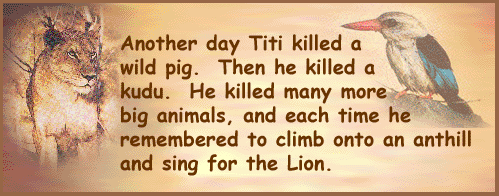
- I wrote a poem about the beauty of the sky over Nkhota-Kota, and I called it, "is this deepest darkest Africa?" and there are entries in my journal under the heading "mundane" -- stuff that happened on that day -- which were also Africa. Descriptions of clouds and local characters and harrowing sports club trips to distant schools which would lead E.V. Banda to laugh, even though the moment hadn't become the past yet, and announce that we were living another chapter of a book I'll (never) write.
Chatting is charting . . .
I often walked through the grounds of the hospital; it was a short-cut past stories of children dying of tonsillitis and people being sent to the morgue before they were dead, because there weren't the resources to save them. I spent too many hours sitting in the shade outside the morgue, waiting and mourning people I had never met.- where words get lost
he drags her silent/ into some dark corner/ a restroom/ a staff-room
a room in a guesthouse
he pulls out his cock/ like it's a toy/ and she's a child/ she is/ it isn't
he tells her to lift/ her skirt/ lie back/ drop her pants/ obey/ like it
he tells her to smile/ to scream/ spells chat with an r/ before the t
so she yelps softly/ so no one hears
then/ the business done/ as if its some stereotype/ some joke/ he hands her her
packet/ of sugar/ a package of/ tea leaves
and the other one in the poem/ no one, i suppose/ looks the other way- 2/9/98 from compositions: Now I can conclude that there is no difference between UDF and MCP because if people were killed during MCP still now people are killed in many ways. One of them is rising of goods which people can not afford to buy and survive, e.g. food. And people are suffered from hunger everywhere in the country.
- 22/9/98 from compositions: Other badness is when girls are in class some boys mock them and change girl's name to be Gable, for that girls are not free in class. [2]
- 18/10/98 Just a few days before I moved out of Nkhota-Kota, I and some students moved 1000 paper cranes that had been hanging from my sitting-room ceiling to the children's wards at the district hospital. We didn't put quite 1000 up and in general we hung a tangled mess, while children lay in beds, mothers sat on the floor, me on the ladder inhaling dust, disease and neglect, screams from other parts of the hospital.
- 2/9/98 from compositions: Now I can conclude that there is no difference between UDF and MCP because if people were killed during MCP still now people are killed in many ways. One of them is rising of goods which people can not afford to buy and survive, e.g. food. And people are suffered from hunger everywhere in the country.
- where words get lost
- One Sunday afternoon I followed Shadrack through the district hospital, past the women cooking nsima for their husbands or children or parents who were dying. And then I followed him through the shells of a once thriving business district, crumbling shops a faint memory of the time before the Kamuzu forced the South Asians into either Lilongwe or Blantyre, or out of the country all together. Shadrack had appeared at my door as he said he would and as he periodically did. He sat on my couch in my house in Nkhota-Kota. He wore a plaid suit like he did every time he would come to my house to chat in English with me, or sit silently, simply in my presence. He appears so old that he might remember a time when lions were animals that would come out of the bush and raid a farmer's kraal; he seems so old that he might remember a time before the Lion. It is I who should be deferential.
- The old man wants me to take a picture of himself and his wife under a tree behind their home. As we walk through his village, I notice graffiti written in chalk on abandoned huts: (Nike swoosh), FILA, REEBOK, NO TRESPASSING, NEW YORK. The signature of Nkhota-Kota's O.G.s (Origina Gangstas): Straight outta Lunda Village.
. . . all of a sudden I found myself surrounded, cornered, being told through the breath of alcohol that whites hate blacks. I hate blacks. Then why am I here, I retorted. In America, blacks are hated. The rest of the world hates Africa because Africa is poor. Nothing great has come out of Africa. Whites are intellectually superior to blacks. Sir, how can I go to study in Canada? (2/3/97)
- Boys in my classes would draw the Nike Swoosh on their light blue uniform shirts with ink. I would chastise them. My self-righteousness was indicative of my awareness of my privilege, I thought. But the distinction between Malawi and Namibia, for instance, is that in Malawi Coke bottles are returned for the deposit. In Namibia, a much more developed country, Coke bottles are thrown in rubbish bins. It's so easy for me to discard the Nike Swoosh -- it was mine to throw away. There were other teachers, Malawian teachers, who would chastise the boys for drawing Nike's logo on themselves. But, still they did it. And on the basketball court, some students would stick their tongue out, just like Michael Jordan, the American basketball player.
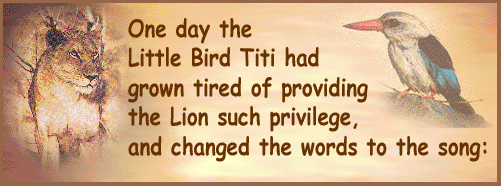
 If I ask him not to do something, he shouldn't do it. But he persists in setting out the cutting board and bread and he stays until I've eaten my lunch, though I may not want what he sets out -- generally treating me like a baby - or a white person. He does these things "for" me because he is suppose to. I'm treated like a baby (helpless) b/c white folks here have traditionally acted like babies, doing little for themselves. (27/2/98)
If I ask him not to do something, he shouldn't do it. But he persists in setting out the cutting board and bread and he stays until I've eaten my lunch, though I may not want what he sets out -- generally treating me like a baby - or a white person. He does these things "for" me because he is suppose to. I'm treated like a baby (helpless) b/c white folks here have traditionally acted like babies, doing little for themselves. (27/2/98)
 A woman in tight mini-skirt, barely a top, high-heels, and a layer of make-up, on the way to drunk, talks. She is educated, she says. She has traveled on her father's money, she says... She speaks about seeing white folks in London sweeping in the streets and painting signs. There is anger and awe in her words. Whites come to Africa, superior, dominant and cruel -- they treat Africans like shit, but whites do the same menial jobs in their homes as only blacks do here. Whites speak of Africa as primitive and backwards but she has seen white beggars in London streets, dressed in rags, and drunk. I wish that she would come talk to my students. She has seen that America does not float upon a cloud above (16/11/97)
A woman in tight mini-skirt, barely a top, high-heels, and a layer of make-up, on the way to drunk, talks. She is educated, she says. She has traveled on her father's money, she says... She speaks about seeing white folks in London sweeping in the streets and painting signs. There is anger and awe in her words. Whites come to Africa, superior, dominant and cruel -- they treat Africans like shit, but whites do the same menial jobs in their homes as only blacks do here. Whites speak of Africa as primitive and backwards but she has seen white beggars in London streets, dressed in rags, and drunk. I wish that she would come talk to my students. She has seen that America does not float upon a cloud above (16/11/97)
 On 23 January 1915, followers of John Chilembwe broke into the house of William Livingstone (a relation of that other, more famous Livingstone) and stabbed him to death, initiating an armed uprising against British rule in what was then called Nyasaland. Livingstone's wife and children were held hostage but not hurt. John Chilembwe was educated as a preacher in the United States, and upon his return to Nyasaland, he created his own church based upon the ideals of the Black Consciousness Movement. Chilembwe opposed the oppression of Africans within the thengata system, and Britain's conscription of African soldiers to fight for a freedom they themselves did not enjoy precipitated a more aggressive movement for liberation. In retribution, Chilembwe's church was burned to the ground by British forces and he and many others were slaughtered. His face appears on Malawi's currency.
On 23 January 1915, followers of John Chilembwe broke into the house of William Livingstone (a relation of that other, more famous Livingstone) and stabbed him to death, initiating an armed uprising against British rule in what was then called Nyasaland. Livingstone's wife and children were held hostage but not hurt. John Chilembwe was educated as a preacher in the United States, and upon his return to Nyasaland, he created his own church based upon the ideals of the Black Consciousness Movement. Chilembwe opposed the oppression of Africans within the thengata system, and Britain's conscription of African soldiers to fight for a freedom they themselves did not enjoy precipitated a more aggressive movement for liberation. In retribution, Chilembwe's church was burned to the ground by British forces and he and many others were slaughtered. His face appears on Malawi's currency. - The Lion didn't like that song, and so Titi was punished.
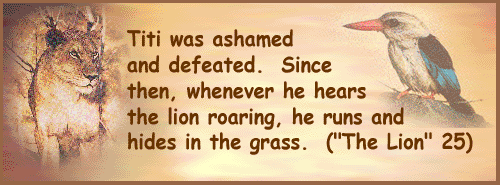

black child meets white man
I squat and say



 "Muli bwanji?"
"Muli bwanji?"
offer my hand



 taken silently
taken silently
and then she



 perhaps three
perhaps three
looks upon her palm
to see if I rub off - I've read this poem before. Berry wrote it. Fanon wrote it. Aidoo wrote it. But, I know, this poem is somewhat different. I do rub off. And other people rub off on me.
- The path from the main road to Sani Beach winds for about 4km. Nearly every time I walked that path or rode down it on my bicycle, I would meet children. As if I were a stray from the Nkhota-Kota game park, they would yell at me from a safe distance among the cassava mounds, or they would follow me, teasing, come and chat, touch the hair on my calves. Some of the children who lived around Sani school knew my name: Davide. On my way to the beach on a Saturday or Sunday morning, I'd stop and play games with them or just talk.
- On the beach there is a rock formation. In the rocks I saw a whale, beached and on its back, when looked at from a certain angle. It would float on the blue water like clouds in sunshine. I could stare it into shape -- a rock, a whale -- writing poems about legends of Lake Malawi whales turning to stone, the letters washing away the name.
I can stare long enough at the rock whale that it becomes me, in the back of a pick-up truck filled with chickens and maize and baskets of fish and people. As we speed by, twisting and turning around pot-holes, people walking along the side of the road or sitting in the shade of trees wave and shout my name: Hello!
- A volunteer teacher from Japan said, as we traveled along the lakeshore road one day: "I feel like a wild caged animal."
- A volunteer teacher from Japan said, as we traveled along the lakeshore road one day: "I feel like the Queen of England." And she waved as the Queen does, and smiled. I waved too. I could see myself in that rock waving back at people not waving at me.
- I spent some time thinking about me. I wrote somewhere in my journal that while I was in Nkhota-Kota ostensibly to teach, really I was there to learn. And I remember too, that I wanted to leave Hamilton, Ontario, and go and live somewhere different. I don't remember what my intentions were -- perhaps I was well-intentioned. But so was Livingstone (6/10/98). I wanted to develop:
I seem to be getting closer to where I want to be . I can make pasta from scratch; I made mango jam today and started a flower garden. I'm free with my stuff, time, money and house -- with those I like or care about, people who don't like me and people I don't know. . . . I whine about it so I'm not selfless. . . . And I'm trying to teach people not to stare or call me mzungu (5/1/98).
- For two years I never left my house without someone shouting at me. One day, I walked down a pathway of a road. There were children in the mango trees and they shouted my name: Mzungu!! I spun around straining my eyes in search of this mzungu. "Kuti?" I shouted, as I looked round and round. "Uco, uco . . . Inu!!" the children replied, pointing at me. I quickly looked over my shoulder as I feared this mzungu had crept up behind me. Then, finally, I looked down at my hands, and saw . . . it was me. And I screamed in terror. The moment of discovery. And the children roared with laughter.
- I said: Sindiri mzungu. Ndiri munthu. On such occasions I would point to my mouth, my eyes, my ears, my legs. I am not a white man, I am a person. Like you. (At the end of my contract, I got on a plane and flew away.)
- And the next time I walked down that path, those same children were in the mango trees again, but they had changed their tune. "Sindiri mzungu, ndiri munthu!" they mocked.
here/me the girl in the path
no more than four
bare feet and bare head
and second-hand dirty dress
clinging down to her knees
around her big belly
walks watching mud
where her toe prints will bethen looks up
notices
eyes growing wide
the prelude to smile or cryshe says
hello
and i smile back
hellothere is pride in her grin
accomplishment
as if "it really works, it works!"give me one kwacha[3]
me pressed down into red mud
into nothing
something
I'd rather not be seen to be
But it's almost impossible to control how I am seen to be.
- Once, I went for a walk with a man who sells wood-carvings. We chatted for quite a while. I was thirsty and offered to buy him a drink. But the security guard wouldn't let the man enter the hotel with me.
- Once, the biggest name in Malawian reggae, the "voice of the voiceless," played the assembly hall at the school. Hundreds more than capacity waited outside to enter. Security beat on people with sticks to make a path for me and some other whites to enter. I stayed outside. My "friends" joined me after finding that it was just too hot in the hall. The music came out through the windows.
- Once, a bus broke down just outside Harare. When another stopped to take on passengers, the conductor would only allow whites to board the bus. I tried to convince the people I was traveling with to wait for another bus. But the sun was setting.
- Once I went to a party at a small beach resort. Most of the people at the party were (white) volunteers or expats. I went to the party with a few Malawian friends. There were comments about my Malawian friends: They were there for the free beer and free food. And more hurtful things were said, too.
- Sometimes the clerks at the post office would gesture to me to find my way through the throng of patrons to be "next." But I would wait my turn -- jostle with agogos and children, like anyone else.
- Once I stood in the bank while a white tourist yelled at the manager. And I could understand that the other people in the bank were mocking him, in Chichewa. And I laughed too.
- All the time I was there, there were other teachers who thought my friends only befriended me because they wanted a donor.
- And so . . . often I played games on the beach with children or football with my neighbors' kids. I'm tempted to say that kids are my best friends, the most forgiving, the most open, once they get over the fear of my apparent difference (22/1/98). The young ones would sometimes wail and cry at the sight of me. Through their parents laughter I would learn that the child was seeing a ghost. Older ones, my students, would have other visions:
a crisis of water
my colleagues scrabble away
another day
at the end of the corridor
used symbolically as a literal toilet
busy doing nothing
with students
without wateri walk across campus
with a bag of vegetables
and a loaf of breadpast hungry, thirsty patient
young men
mzungu!
mzungu!
a voice across the way;
smiling
I am hungry.
i have but one loaf-
for six hundred mouthsjesus christ!
i am not jesus christ.jesus christ!
feed us.
all.
